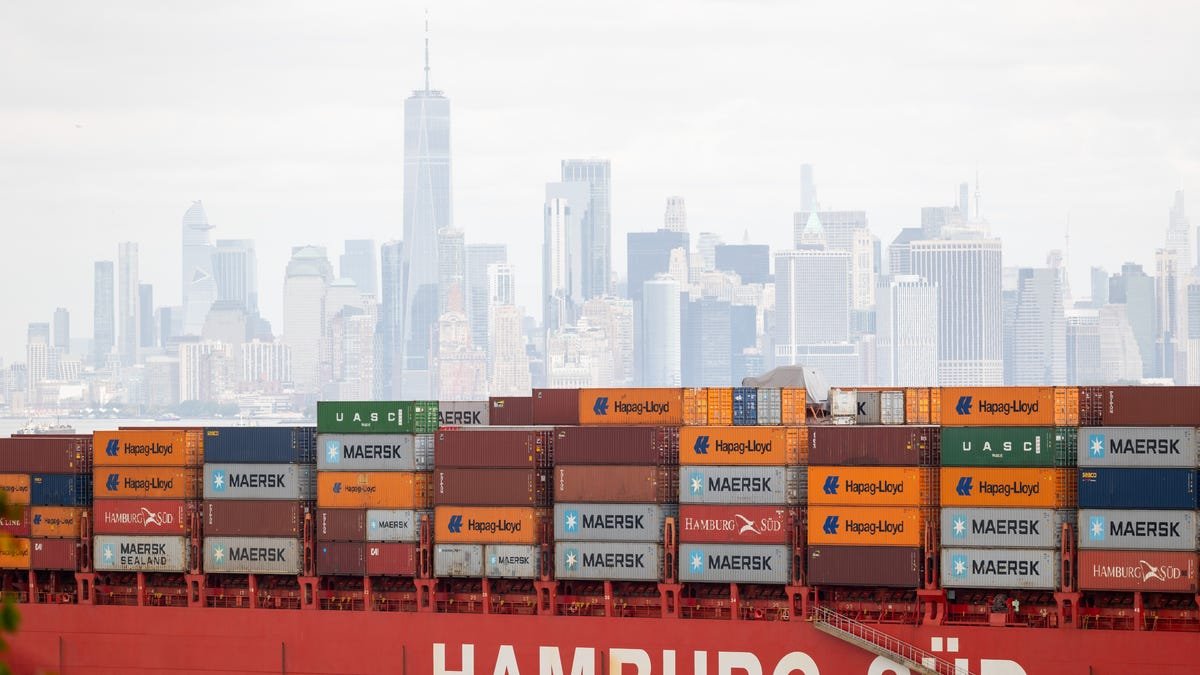consumer staples that will be affected

Shoppers may soon find it more challenging to locate everyday items such as bananas, salmon, and wine now that a massive U.S. port strike has started. The strike involves thousands of dockworkers advocating for better pay and working conditions.
If the port strike is resolved quickly, “Consumers most likely won’t feel a major impact,” Jeremy Tancredi, a partner specializing in supply chain and operations at West Monroe Partners, told Quartz. However, he warned, “If it isn’t resolved in a timely fashion, consumers can certainly expect higher prices and face emptier shelves down the line.”
The strike is poised to disrupt supply chains significantly and is likely to affect product availability and prices for consumers, Christopher S. Tang, a distinguished professor at UCLA’s Anderson School of Management who specializes in supply chain management, told Quartz in a statement.
As Tang noted, over 70% of bananas consumed in the U.S. are imported from Guatemala and Mexico, as are tomatoes and lettuce from Mexico to the East Coast. These low-value items are not typically shipped by air due to cost constraints, making them particularly vulnerable to delays. Consequently, consumers may face reduced availability and higher prices for these staple products.
In contrast, high-value produce such as blueberries and asparagus from Peru can be shipped by air, but this method significantly increases costs, raising concerns about inflated grocery prices. The strike also threatens the seafood market, with shrimp from Thailand and Ecuador, as well as tuna and salmon, expected to face substantial shipping challenges. Delays at ports could result in shortages of these popular items.
As the holiday season approaches, the strike’s impact could extend to toys and garments made in Southeast Asia, including Vietnam, Bangladesh, and Cambodia. Should the strike continue for a month, shoppers may find themselves unable to purchase popular gifts, leading to increased competition, Erik Rosica, a sales supervisor at OEC Group, told Quartz.
“For shoppers, this means longer wait times for gifts,” Michael Yamartino, CEO of Route, told Quartz. “For merchants, this is more than a logistical nightmare; it’s a customer experience issue.”
John Lash, vice president of product strategy at E2open, noted that a substantial amount of cargo arrives at eastern ports, including car parts, appliances, and vehicles. The automotive sector, in particular, will be particularly affected because “the reliance on specific parts is crucial.”
He said other staples such as beverages, wine, kitchenware, and flooring will also feel the ripple effects of supply disruption. Meanwhile, Dutch Mendenhall, CEO at RADD Companies, said electronics could see price hikes and delays.
Below, we’ve compiled a list of some items most likely to be affected as the strike continues.
for more
Source link
Share this content:
